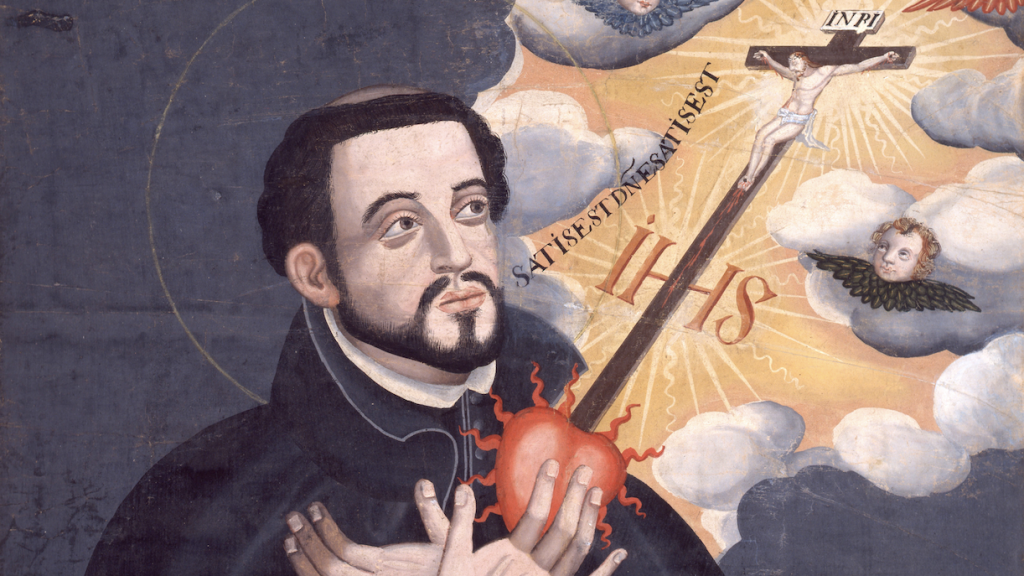St. Francis Xavier was born in 1506 in Navarre, which is now part of both Spain and France. His father was an adviser to King John III and his mother was an heiress. Francis chose not to follow his brothers in the military, and instead studied philosophy in Paris, earning his masters’ degree and then going on to teach.
In Paris, Francis remained close with his childhood friend Peter Faber, and met St. Ignatius Loyola, both of whom helped him determine how God was calling him. At first, he rejected Ignatius’ austere lifestyle, but Ignatius continued to echo Christ’s question to Francis: “What will it profit a man to gain the whole world, and lose his own soul?” Over time, Ignatius convinced Francis to give up his own plans and heed God’s call.
In 1534, Francis, Peter Faber, and four other men made vows of poverty, chastity, and dedication to spreading the Gospel along. Francis was ordained in 1537, and three years later, Pope Paul III confirmed Ignatius and his companions as the Jesuit religious order. In the same year, the king of Portugal asked the pope to send missionaries to convert newly-acquired territories in India.
Francis and another Jesuit, Simon Rodriguez, went to Portugal to spread the faith and care for the sick. Then, on Francis’ 35th birthday, he set sail for Goa, India, where he found the Portuguese colonists abusing their status and disgracing the Church.
Francis worked tirelessly to fix the situation there. He visited the sick and the imprisoned, taught children about God, and preached to the Portuguese and the Indians. He lived in a hut with a dirt floor, eating rice and water.
He had great success converting the common people, although it was harder to convert the upper class Hindus and Muslims. He traveled to Malaysia in 1545 and Japan in 1549 to continue his work, where he instructed the first generation of Japanese Catholics.
While trying to enter China, Francis fell ill and died on Dec. 3, 1552. He and St. Ignatius Loyola were canonized on the same day in 1622.

